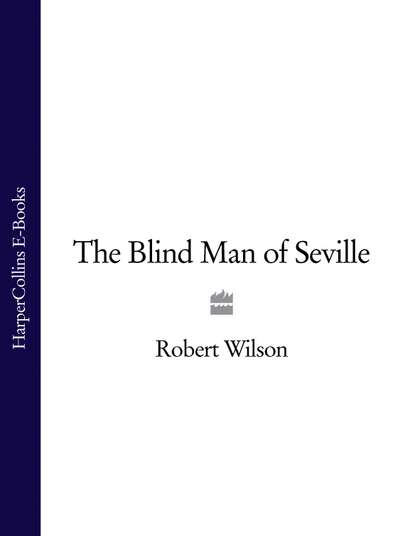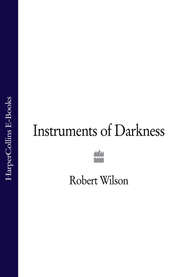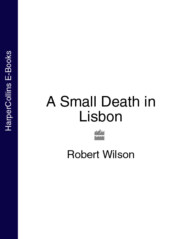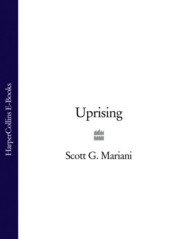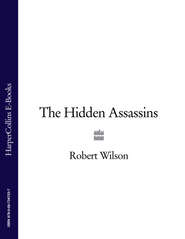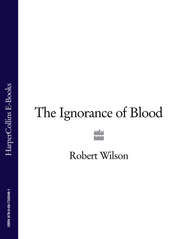По всем вопросам обращайтесь на: info@litportal.ru
(©) 2003-2024.
✖
The Blind Man of Seville
Автор
Год написания книги
2018
Настройки чтения
Размер шрифта
Высота строк
Поля
‘But what was it, Señor Juez? This is my apartment. I should like to know what you were looking at on my television.’
With Calderón taking the pressure, Falcón watched at leisure and, although he was sure he didn’t know her, he at least knew the type. This was the sort of woman who would have turned up at his father’s house, when the great man was still alive, looking to buy one of his late works. Not the special stuff, which had made him famous. That was long gone to American collectors and museums around the world. This type was looking to buy the more affordable Seville work — the details of buildings: a door, a church dome, a window, a balcony. She would have been one of those tasteful women, with or without tiresome wealthy husband in tow, who wanted to have their slice of the old man.
‘We were watching a video, which had been left in the apartment,’ said Calderón.
‘Not one of my husband’s … ‘ she said, hesitating perfectly to let them know that ‘dirty’ or ‘blue’ was unnecessary. ‘We had few secrets … and I did happen to see the last few seconds of what you were watching.’
‘It was a video, Doña Consuelo,’ said Falcón, ‘which had been left here by your husband’s murderer. We are the three officers of the law who will be running the investigation into your husband’s death and I thought it important that we saw the film as soon as possible. Had we known that you would be so prompt …’
‘Do I know you, Inspector Jefe?’ she asked. ‘Have we met?’
She turned to face him full on, her dark fur-collared coat open, a black dress underneath. Not someone to be inappropriately dressed for any occasion. She gave him the full force of her attractiveness. Her blonde hair was not quite so structured as in the desk photograph but the eyes were bigger, bluer and icier in reality. Her lips, which controlled and manipulated her dominating voice, were edged with a dark line just in case you might be foolish enough to think that her soft, pliable mouth could be disobeyed.
‘I don’t think so,’ he said.
‘Falcón … ‘ she said, feeling the rings on her fingers as she looked him up and down. ‘No, it’s too ridiculous.’
‘What is, may I ask, Doña Consuelo?’
‘That the artist, Francisco Falcón, should have a son who is the Inspector Jefe del Grupo de Homicidios de Sevilla.’
She knows, he thought … God knows how.
‘So … this film,’ she said, turning on Ramírez, sweeping her coat back and fitting her fists into her waist.
Calderón’s eyes flashed across her breasts before they locked on to Falcón over her left shoulder. Falcón shook his head slowly.
‘I don’t think this is something you should see, Doña Consuelo,’ said the young judge.
‘Why? Is it violent? I don’t like violence,’ she said, without unfixing Ramírez from her gaze.
‘Not physically,’ said Falcón. ‘I think you might find it uncomfortably intrusive.’
The reels of the video squeaked. It was still playing. Sra Jiménez picked up the remote from the corner of the desk and rewound the tape. She pressed ‘play’. None of the men intervened. Falcón shifted to catch her face. Her eyes narrowed, she pursed her lips and gnawed at the inside of her cheek. Her eyes opened as the silent film played. Her face slackened, her body recoiled from the screen as she began to realize what she was watching, as she saw her children and herself become the study of her husband’s killer. When they reached the end of her first taxi ride, to what everybody now knew was 17 Calle Río de la Plata, she stopped the tape, threw the remote at the desk and walked swiftly from the room. The men tossed silence between them until they heard Sra Jiménez retching, groaning and spitting in her halogen-lit, white marble bathroom.
‘You should have stopped her,’ said Calderón, pushing his hand through his hair again, trying to shift some of the responsibility. The two policemen said nothing. The judge looked at his complicated watch and announced his departure. They agreed to meet after lunch, five o’clock in the Edificio de los Juzgados, to present their initial findings.
‘Did you see that photograph on the end there by the window?’ asked Falcón.
‘The one of León and Bellido?’ said Calderón. ‘Yes, I did, and if you look a bit closer you’ll see there’s one of the Magistrado Juez Decano de Sevilla in there, too. Old hawk eyes, Spinola, himself.’
‘There’s going to be some pressure on this case,’ said Ramírez.
Calderón chucked his mobile from one hand to the other, slipped it in his pocket and left.
3 (#ulink_6ea75a6b-c776-5997-aa73-bd2123f1c01c)
Thursday, 12th April 2001, Edificio Presidente, Los Remedios, Seville
Falcón told Ramírez to interview the removals men — specifically to ask them when they arrived and left, and whether their gear was unattended at any stage.
‘You think that’s how he got in?’ asked Ramírez, the man incapable of just doing something.
‘This is not an easy building to get into and out of without being seen,’ said Falcón. ‘If the maid confirms that the door was double locked when she arrived this morning, it’s possible he used the lifting gear to get in. If it wasn’t then we’ll have to scrutinize the closed-circuit tapes.’
‘That takes a lot of nerve, Inspector Jefe,’ said Ramírez, ‘to wait in here for more than twelve hours.’
‘And then slip out when the maid came in to find the body.’
Ramírez bit his bottom lip, unconvinced that that sort of steel in a man existed. He left the room as if more questions were about to turn him back.
Falcón sat at Raúl Jiménez’s desk. All the drawers were locked. He tried a key from a set on the desk, which opened all the drawers down both sides, while another opened the central one. Only the top two drawers on either side had anything in them. Falcón flicked through a stack of bills, all recent. One caught his attention, not because it was a vet’s bill for a dog’s vaccinations, and there had been no evidence of any dog, but rather that it was his sister’s practice and it was her signature on the bill. It unnerved him, which was illogical. He dismissed it as another non-coincidence.
He went through the central drawer, which contained several empty Viagra packets and four videos. From their titles, they seemed to be blue movies. They included Cara o Culo II, the sequel to the video whose slipcase had been left empty on the TV cabinet. It occurred to him that they hadn’t found the porn video that was showing on the TV while Raúl was with the prostitute. He shut the drawer. He began a detailed inspection of the photographs behind him. He thought that Raúl Jiménez might have known his father. He was, after all, a famous painter, a well-known figure in Seville society, and Jiménez seemed to be a celebrity collector. As he worked his way from the centre out to the edges he realized that this was a collection of a different order of celebrity. There was Carlos Lozano, the presenter of El Precio Justo. Juan Antonio Ruiz, known in the bullring as ‘Espartaco’. Paula Vázquez, the presenter of Euromillón. They were all TV faces. There were no writers, painters, poets, or theatre directors. No anonymous intellectuals. This was the superficial face of Spain, the Hola! crowd. And when it wasn’t, it was the bourgeoisie. The police, the lawmen, the functionaries who would make Raúl Jiménez’s life easier. The glamour and the graft.
‘Did you find who you were looking for?’ asked Sra Jiménez from behind him.
She was out of her coat, wearing a black cardigan and leaning against a guest chair. Her eyes were pink-rimmed despite the make-up repair.
‘I’m sorry you saw that,’ he said, nodding at the television.
‘I’d been warned,’ she said, taking a packet of Marlboro Lights out of her cardigan pocket and lighting one with a Bic from the desk. She threw the pack on the desk, offering him one. He shook his head. Falcón was used to this ritual sizing up. He didn’t mind. It gave him time, too.
He saw a woman about the same age as himself and well groomed, maybe over groomed. There was a lot of jewellery on her fingers whose nails were too long and too pink. Her earrings clustered on her lobes, winking from the nest of her blonde helmet. The make-up, even for a repair job, was heavily slapped on. The cardigan was the only simple thing about her. The black dress would have worked well had it not had a hem of lace which, rather than bringing grief to mind, brought sex awkwardly into contention. She had square shoulders and an uplifted bust and was full-bodied with no extra fat. There was something of the health club fitness regime about her, the way the straps of muscle in her neck framed her larynx and her calf muscles were delineated beneath her black stockings. She was what the English would call handsome.
She saw a fit man in a perfectly cut suit with all his hair, which had gone prematurely grey but belonged to a class of person who would never think of returning it to its original black. He wore lace-up shoes and the tightness of the bows led her to believe that this was someone who rarely unbuttoned his jacket. The handkerchief in his breast pocket she assumed was always there but never used. She imagined that he had a lot of ties and that he wore them all the time, even at weekends, possibly in bed. She saw a man who was contained, trussed and bound. He did not give out, which may have been a professional attitude but she thought not. She did not see a Sevillano, not a natural one anyway.
‘You said earlier, Doña Consuelo, that you and your husband had few secrets.’
‘We should sit,’ she said, pointing him into her husband’s desk chair with her cigarette fingers and pivoting the guest chair round with some dexterity. She sat quickly, slipped sideways on to one of the arms and crossed her legs so that the lace hem rode up her calf.
‘Are you married, Inspector Jefe?’
‘This is an investigation into your husband’s murder,’ he said flatly.
‘It’s relevant.’
‘I was married,’ he said.
She smoked and counted her fingers with her thumb.
‘You didn’t need to tell me that,’ she said. ‘You could have left it at “Yes”.’
‘These are games we should not be playing,’ he said. ‘Every hour that goes past takes us an hour away from your husband’s death. These hours are important. They count more than the hours, say, in three or four days’ time.’
‘You’ve separated from your wife?’ she said.
‘Doña Consuelo …’





